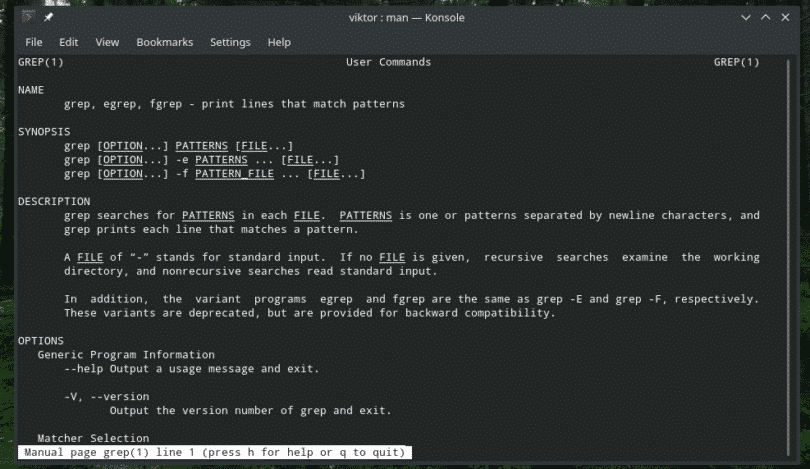
If we check the output above, we can see that “test/app/readme.md” is in the list, too. The grep command searches the given input files for lines containing a match or a text. The following command will print the same output: $ grep -R -include=*. Use the fgrep command to avoid the necessity of using escape characters such as the backslash. r, -recursive Read all files under each directory, recursively, following symbolic links only if they are on the command line. Chmod all files to 644 and all folders to 755 of a directory. Test/log/app_20200301.log:DATETIME - SQLException has OccurredĪs we can see, the file test/app/readme.md appears in the output as well.Īlternatively, we can also use one single –include option and let the GLOB expression contain multiple extensions. Test/log/app_20200401.log:DATETIME - ClassCastException has Occurred sh and few other Stack Exchange Network Stack Exchange network consists of 182 Q&A communities including Stack Overflow, the largest, most trusted online community for developers to learn, share their knowledge, and build their careers. Test/log/app.log:DATETIME - NullPointerException has Occurred I tried grep -rl 'JAVAHOME' grep '.sh', grep -rl 'JAVAHOME'. Test/app/change_log.log:Fix the NullPointerException Problem when calling external APIs Test/app/readme.md: - Exceptions are well handled Now, let’s search for the word “Exception” on *.log and *.md files: $ grep -R -include=*.log -include=*.md 'Exception' test Your second command line (again ignoring the -l flag): > grep. It will find nothing if there are no such files in the current directory. is recursively searching, within the files in the current directory whose filenames end in.

n will print the line number, where it matched in the file. therefore, your original command line (ignoring the -l flag): grep -lr search-pattern. You can specify -R for 'recursive', which means the program searches in all subfolders, and their subfolders, and their subfolder's subfolders, etc. Since 1974, the Linux grep command has been helping people find strings in files. You can use this to search the current directory.


–include=*.log is an example of the –include=GLOB option, which tells grep to only search files whose basename matches the given GLOB expressionĪlso, we can use multiple –include=GLOB options to ask the grep command to search on files that match multiple extensions. GREP: Global Regular Expression Print/Parser/Processor/Program.That is, it’s going to search the given pattern in files in any subdirectory under test To suppress the default grep output and print only the names of files containing the matched pattern, use the -l ( or -files-with-matches) option.


 0 kommentar(er)
0 kommentar(er)
